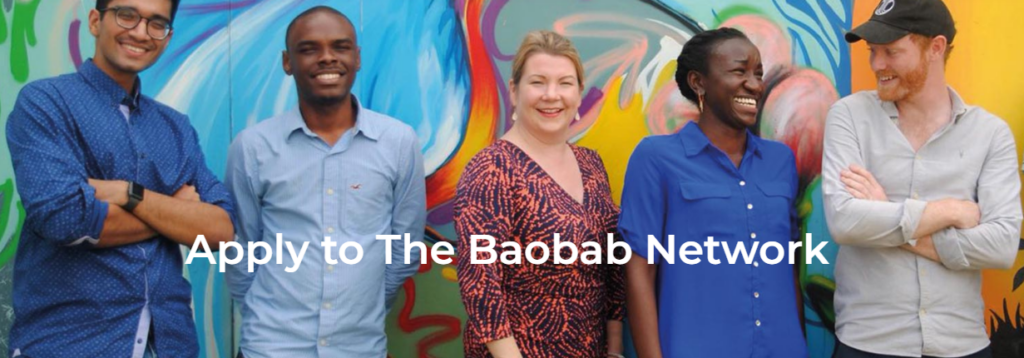- The Baobab network has called for applications for the Cohort 1, 2023 accelerator programme
- The accelerator programme is designed to give Entrepreneurs in Africa the funding and platform they need to take their ideas global.
- The programme will offer start-ups $50,000 USD in funding, a three month cohort program including personalised two-week consultation sessions with tailored support, in exchange for 10 percent equity.
The Baobab Network has called for applications for the Cohort 1, 2023 accelerator programme aimed at supporting Africa’s boldest innovators to scale homegrown solutions.
The accelerator programme is designed to give Entrepreneurs in Africa the funding and platform they need to take their ideas global.
The programme will offer start-ups $50,000 USD in funding, a three month cohort program including personalised two-week consultation sessions with tailored support in exchange for 10 percent equity.
Their venture team works with startups to accelerate growth, build capacity and unlock the next funding stages to help companies scale.
Eligible to apply include early-stage technology creating or technology-enabled businesses and African Startups operating in African markets.
Six African startups named in World Economic Forum’s top 100 global tech pioneers
Application Requirements
The Baobab Network’s expertise is early-stage tech companies, they ideally want companies that have built an MVP of their product or service, or are at the initial stages of scale
They also require a couple of documents from you to support your application (i.e. investment deck, cap table, traction document, etc.)
“Our remit covers the whole of Africa, as long as you are living and working in a key market that we cover then we’d like to work with you. We will work with companies across many sectors and verticals. There are a few industry areas we don’t specialise in which are outlined in our FAQ’s,” the firm states.
The firm advises applicants to give as much information they can provide upfront with applications taking around 15 to 25 minutes.
“We recommend that you familiarise yourself with our FAQ’s as well as taking a look at the Application Form,” the firm advices.
Successful applicants will be contacted by a member of our team within 4-12 weeks.
Photo/ Txfnews.
Startup-facing mistakes
According to Sam Sturm, Chief Venture Architect at Founders Factory Africa, startups face different challenges which can be sorted out at accelerators. Some include Talent mistakes: where many founders underestimate the importance of securing the right talent such as Chief Technology Officer (CTO), Product/Growth Leads, or senior-level engineers.
“Success is achieved when sound product management, robust growth engines, fluent sales mechanisms, and efficient internal operations click together, enabling a venture to deliver value sustainably and consistently at scale,” he said.
Sometimes, founders make the mistake of assuming they know what their users want and build ahead of what the business needs. On the contrary, Sturm believes that a product should be a means to an end – it’s a way of delivering a solution to your users rather than an end in itself.
“What potential customers want to know is not all the things your product can do, but what problem it solves for them. Similarly, investors, especially, early-stage investors, want to see evidence that you’re solving a problem. I care less about Total Available Market (TAM) and your 5-year revenue projections than I do about what you’ve learned from your target customers and how those insights influence what you’re building,” he stated.
Cost-estimation mistakes are also very common with startups. It’s possible for founders to underestimate the costs of building and scaling a startup in their markets. Later on, they realise that it’s more expensive to acquire customers than they think, B2B sales cycles are longer than they estimate, and the time it takes to find/hire talent is often significantly longer than projected.
According to Ricardo Schaefer, Partner at Target Global, the biggest pitfall is raising at terms that are not market standard. Because of lack of capital, people take on “not-so-smart” money from investors that attach strings and demand clauses which hurt the company down the line.
“It’s not so easy, because sometimes you just want to raise capital. However, this impatience can hurt you down the line because you can get stuck with an investor that will prevent you from raising your next round. Founders should always look out for what’s market standard in terms of dilution, market rights, and so on.”
